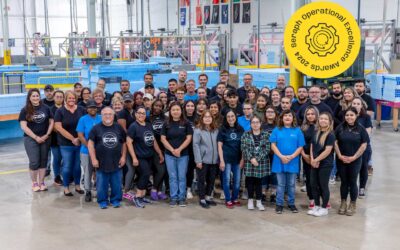When an employee at Coastal Automotive misses a day of work, he or she amasses “points,” or demerits. The Rochester Hills-based supplier of energy-absorbing vehicle materials says workers have called off a shift for such reasons as a friend’s car had a flat tire and they had no other ride.
Company administrators are empathetic, but they say their hands are also tied, since they can’t award some employees preferential treatment over others.
“So many people we lose because they don’t have a way to get to work,” said Victoria Roberts, Coastal’s human resources manager.
The supplier three years ago forged a $9.8 million program with the state called Community Ventures, which uses general fund dollars to match employers with human service providers that can help ex-offenders and workers on the state’s public assistance or Medicaid rolls hold on to jobs.
That program, though, is limited only to employees who live in the city of Pontiac, since the state concentrates its dollars in four of the state’s most troubled urban centers — Detroit, Pontiac, Flint and Saginaw. That means a worker at Coastal who is struggling to make ends meet but lives a few miles away in Auburn Hills isn’t eligible to receive any services, such as gas cards or funds to prevent utility shutoffs.
As a result, Coastal Automotive has committed to join a startup employer resource network that will serve workers who live in all of Oakland County, extending wraparound services to even more people. Oakland Livingston Human Service Agency will be the network’s administrator.
Coastal recently started a pilot program with ride-sharing service Uber, which arranges to drive employees to work. That program has helped at least one dedicated employee, who works as a team leader, drop off her two children and arrive on time for her shift at 6 a.m.
Without it, she likely would have lost her job due to transportation issues alone, regardless of her job performance.
Since joining the Community Ventures program, Coastal Automotive’s retention rate has improved from about 40 percent over 12 months to roughly 67 percent, the state said.
SOURCE-Crain’s Detroit Business
The post Making it work for workers: Employers aim to retain low-income employees, improve bottom line appeared first on Welcome to the new Coastal Automotive.


